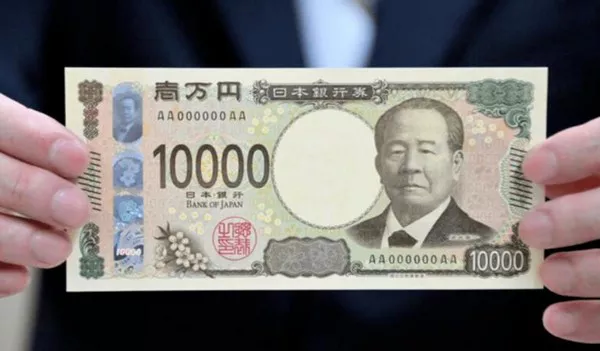The foreign exchange market is a dynamic environment where currencies are bought and sold. Traders around the world analyze various factors to understand currency values. One common question is about the exchange rate between the Hong Kong Dollar (HKD) and the Japanese Yen (JPY). In this article, we will explore how much HKD is worth in JPY and factors affecting this exchange rate.
Understanding Currency Exchange Rates
Before diving into the specifics of HKD to JPY, it’s important to understand what an exchange rate is. An exchange rate indicates how much one currency is worth in terms of another. For example, if the exchange rate is 15 JPY for 1 HKD, it means that one Hong Kong Dollar can be exchanged for 15 Japanese Yen.
Exchange rates fluctuate constantly due to supply and demand. Many factors influence these changes. Economic indicators, geopolitical events, and market sentiment all play a role. Understanding these factors can help traders make informed decisions.
Current Exchange Rate of HKD to JPY
As of the most recent data, the exchange rate for HKD to JPY is approximately 15 JPY for 1 HKD. However, this rate can vary. It is essential to check the current market rates before making any transactions. Financial news websites, forex platforms, and banks provide real-time exchange rates.
To find the most accurate rate, you can use online currency converters. These tools allow you to input the amount of HKD you want to convert to JPY and give you an immediate answer.
Factors Influencing HKD to JPY Exchange Rate
Several factors impact the exchange rate between HKD and JPY. Here are some of the key elements to consider:
1. Economic Indicators
Economic indicators are statistics that show the performance of a country’s economy. Important indicators include GDP, inflation rates, and employment figures.
GDInterest Rates: If Hong Kong raises its interest rates, it can attract foreign investment, leading to a stronger HKD. Conversely, if Japan raises its rates, the JPY could strengthen.
3. Political Stability
Political events can significantly impact currency values. Stable governments tend to have stronger currencies.
Unrest or Uncertainty: Political instability in Hong Kong or Japan may lead to a depreciation of their respective currencies. Investors prefer stability, so they may sell off HKD or JPY in uncertain times.
4. Market Sentiment
Market sentiment refers to the overall attitude of investors toward a particular currency. If traders believe that the HKD will strengthen, they may buy more HKD, driving up its value.
Speculation: Traders often buy or sell currencies based on news, trends, or predictions. This can lead to short-term fluctuations in the exchange rate.
5. Trade Balances
The balance of trade between Hong Kong and Japan can also affect the exchange rate.
Exports and Imports: If Hong Kong exports more to Japan than it imports, demand for HKD increases, potentially strengthening it. The reverse is true for JPY.
How to Convert HKD to JPY
To convert HKD to JPY, you can follow these simple steps:
Check the Current Exchange Rate: Look up the latest rate for HKD to JPY.
Decide the Amount: Determine how much HKD you want to convert.
Calculate the Conversion: Multiply the amount in HKD by the current exchange rate to get the equivalent amount in JPY.
For example, if you have 1,000 HKD and the exchange rate is 15 JPY for 1 HKD:
1,000 HKD×15 JPY/HKD=15,000 JPY
Currency Exchange Services
When converting HKD to JPY, you have several options for currency exchange services:
1. Banks
Banks are a reliable option for currency exchange. They usually offer competitive rates and can handle large amounts. However, they may charge fees.
2. Forex Brokers
Forex brokers specialize in currency trading. They offer real-time rates and allow you to trade currencies directly. This can be advantageous for traders looking to make profits.
3. Currency Exchange Kiosks
Currency exchange kiosks can be found in airports, shopping centers, and tourist areas. They offer convenience, but rates may not be as favorable as banks or brokers.
4. Online Platforms
Many online platforms allow you to exchange currencies. These platforms often provide competitive rates and lower fees. However, ensure you choose a reputable provider.
Risks in Currency Trading
Trading currencies involves risks. Here are some potential risks to consider:
1. Market Volatility
Currency values can change rapidly. A sudden shift in market sentiment can lead to significant losses. Traders need to be aware of the potential for quick fluctuations.
2. Leverage Risks
Many forex traders use leverage to increase their exposure. While this can amplify profits, it can also lead to substantial losses. It is crucial to understand leverage and use it cautiously.
3. Economic Events
Economic reports and geopolitical events can influence exchange rates. Traders must stay informed about global news that may impact the HKD/JPY exchange rate.
4. Regulatory Risks
Different countries have various regulations regarding currency trading. Staying compliant with regulations is essential to avoid legal issues.
Conclusion
Understanding the exchange rate of HKD to JPY is vital for anyone involved in currency trading or international business. As of now, the rate is approximately 15 JPY for 1 HKD, but this can change frequently. Various factors influence this exchange rate, including economic indicators, interest rates, political stability, market sentiment, and trade balances.
When converting currencies, it’s essential to use reliable services and stay updated on current rates. Traders should also be aware of the risks involved in currency trading. By staying informed and using strategic approaches, traders can navigate the complexities of the forex market successfully.
As the foreign exchange market continues to evolve, being knowledgeable about currency pairs like HKD to JPY will enable traders to make informed decisions. Whether you are a beginner or an experienced trader, understanding these elements can enhance your trading strategy and outcomes.
Related Topics:

























